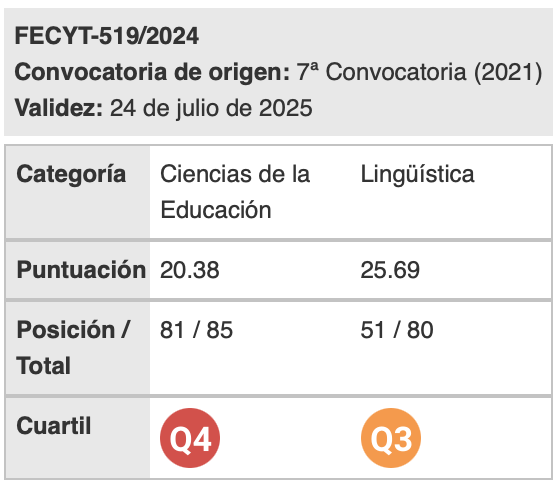A Corpus-based Study of I am thinking in Political Speeches
Resumen
This paper examines the occurrence of I am thinkingin political speeches as opposed to general discourse. This combination containing a verb traditionally considered incompatible with the progressive seems to be evolving and extending its range of functions. Data drawn from a reference corpus of British English shows that I am thinkingserves a wide array of discursive functions, besides its basic propositional cogitate meaning (parenthetical, filler, narrative and interpretative). In political speeches the construction has developed an almost exclusive cohesive role, i.e. the speaker’s clarification of a previous utterance. This use, which derives from the interpretative progressive, is not available with the simple form, I think, a phrase extensively studied in the past decades as an epistemic unit with dissimilar functions in different types of discourse (Simon-Vandenbergen 2000). This analysis, furthermore, makes an important contribution to the understanding of the progressive as a marker of contingency (Goldsmith & Woisetschlaeger 1982; De Wit & Brisard 2014), highly interpretable in a situational or linguistic context.
Descargas
Citas
Aarts, B., Close, J. & Wallis, S. (2010). Recent changes in the use of the progressive construction in English. In B. Cappelle & N. Wanda (Eds.), Distinctions in English grammar offered to Renaat Declerck (pp. 148-167). Tokyo: Kaitakusha.
Aijmer, K., (1997). I think –an English modal particle. In T. Swan & O. JansenWestvik (Eds.), Modality in the Germanic Languages (pp. 1-7). Berlin: de Gruyter Mouton.
Alexander, M. & Davies, M. (2015-) Hansard Corpus 1803-2005. Available online at http://www.hansard-corpus.org.
Biber, D., Johansson, S., Leech, G., Conrad, S., & Finegan, E. (1999). Longman grammar of spoken and written English. Harlow: Pearson.
Brinton, L. J. (1996). Pragmatic markers in English: Grammaticalization and discourse functions. Berlin: de Gruyter Mouton.
Brinton, L. J. (2008). The comment clause in English: Syntactic origins and pragmatic development. Cambridge: Cambridge University Press.
Bybee, J. (2015). Language change. Cambridge: Cambridge University Press.
Calver, E. (1946). The uses of the present tense forms in English. Language 22(4). 317-325.
Comrie, B. (1976). Aspect. Cambridge: Cambridge University Press.
De Wit, A. & Brisard, F. (2014). A Cognitive Grammar account of the semantics of the English present progressive. Journal of Linguistics 50(1). 49-90.
Downing, A. (2015). English grammar: A university course. London: Rutledge.
Goldsmith, J. & Woisetschlaeger, E. (1982). The logic of the English progressive. Linguistic Inquiry 13(1). 79-89.
Hopper, P. J. & Traugott, E.C. (2003). Grammaticalization. Cambridge: Cambridge University Press.
Huddleston, R., & Pullum, G.K. (2002). The Cambridge grammar of the English language. Cambridge: Cambridge University Press.
Jucker, A. (1986) News interviews. Amsterdam: John Benjamins.
Kaltenböck, G. (2009). Initial I think: Main or Commment clause? Discourse and Interaction 2(1), 49-70.
Kaltenböck, G. (2010). Comment clauses as constructions. Vienna English Working Papers 19(1,2). 21-46
Kärkkäinen, E. (2003). Epistemic Stance in English Conversation: A Description of its Interactional Functions, with a Focus on I think. Amsterdam: John Benjamins.
Kirk, J.M. (2015). The progressive in Irish English: Looking both ways? In P. Collins (Ed.), Grammatical Change in English World-Wide (pp.87-118). Amsterdam: John Benjamins.
König, E. (1980). On the context-dependence of the Progressive in English. In C. Rohrer (Ed.), Time, Tense, and Quantifiers. Proceedings of the Stuttgart Conference on the Logic of Tense and Quantification (pp. 269-291). Tübingen: Niemeyer.
König, E. (1995). He is being obscure: non-verbal predication and the progressive. In Bertinetto, P.M., Bianchi, V., Dahl, O. & Squartini, M. (Eds.), Temporal Reference, Aspect, and Actionality. Vol. II: Typological Approaches (pp. 155-167). Turin: Rosenberg & Sellier.
Kranich, S. (2010). The progressive in Modern English: A corpus-based study of grammaticalization and related changes. Amsterdam: Rodopi.
Leech, G. (2004). Meaning and the English verb, 3rd edn. London: Longman.
Leech, G., Hundt, M., Mair, C. & Smith, N. (2009). Change in contemporary English: A grammatical study. Cambridge: Cambridge University Press.
Levin, M. (2013). The progressive verb in modern American English. In B. Aarts, J. Close & Wallis, S. (eds.), The verb phrase in English: Investigating recent language change with corpora (pp. 187-216). Cambridge: Cambridge University Press.
Ljung, M. (1980). Reflections on the English progressive. Gothenburg: Acta Universitatis Gothoburgensis.
Nuyts, J. (2001). Epistemic Modality, Language, and Conceptualization. A Cognitive-Pragmatic Perspective. Amsterdam: Benjamins.
Quirk, R., Greenbaum, S., Leech, G. & Svartvik, J. (1985). A comprehensive grammar of the English language. London: Longman.
Scheffer, J. (1975). The progressive in English. Amsterdam: North-Holland.
Simon-Vandenbergen, A.M. (1998). Modal (un)certainty in political discourse: a functional account. Language Sciences, 19(2), 341-56.
Simon-Vandenbergen, A.M. (2000). The functions of I think in political discourse. Journal of Applied Linguistics, 10, 41-63.
Smith, N. (2005). A Corpus-based Investigation of Recent Change in the Use of the Progressive in British English. Unpublished Doctoral Dissertation. Lancaster University.
Smith, N. & Leech, G. (2013). Verb structures in twentieth-century British English. In B. Aarts, J.Close & S. Wallis (Eds.), The verb phrase in English: Investigating recent language change with corpora (pp. 68-98). Cambridge: Cambridge University Press.
Smitterberg, E. (2005). The progressive in 19th century English: A process of integration. Amsterdam: Rodopi.
Thompson, S. A.; Mulac, A. (1991). A quantitative perspective on the grammaticalization of epistemic parentheticals in English. In E.C. Traugott, B. Heine (Eds.), Approaches to grammaticalization Vol. 2 (pp. 313-339.) Amsterdam: Benjamins,
Urmson, J.O. (1952). Parenthetical verbs. Mind 61. 480-496.
Van Bogaert, J. (2010). A constructional taxonomy of I think and related expressions: Accounting for the variability of complement-taking mental predicates. English Language and Linguistics, 14(3), 399-427.
Van Bogaert, J. (2011). I think and other complement-taking mental predicates: A case of and for constructional grammaticalization. Linguistics, 49(2), 295-332.
Van Bogaert, J. (2006).“I guess, I suppose and I believe as pragmatic markers: Grammaticalization and functions. Belgian Journal of English Language and Literatures, 4, 129-49.
Williams, C. (2001). The progressive form and the non-progressive form in English: The theory of susceptibility to change. Cauce, Revista de Filología y su Didáctica, 24, 87-117.
Wright, S. (1995). The mystery of the modal progressive. In D.
Kastovsky (Ed.), Studies in Early Modern English (pp. 467-485). Berlin: de Gruyter Mouton.
Descargas
Publicado
Cómo citar
Número
Sección
Licencia
Aquellos autores/as que tengan publicaciones con esta revista, aceptan los términos siguientes:
- Los autores/as conservarán sus derechos de autor y garantizarán a la revista el derecho de primera publicación de su obra, el cuál estará simultáneamente sujeto a la Licencia de reconocimiento de Creative Commons que permite a terceros compartir la obra siempre que se indique su autor y su primera publicación esta revista.
- Los autores/as podrán adoptar otros acuerdos de licencia no exclusiva de distribución de la versión de la obra publicada (p. ej.: depositarla en un archivo telemático institucional o publicarla en un volumen monográfico) siempre que se indique la publicación inicial en esta revista.
- Se permite y recomienda a los autores/as difundir su obra a través de Internet (p. ej.: en archivos telemáticos institucionales o en su página web) antes y durante el proceso de envío, lo cual puede producir intercambios interesantes y aumentar las citas de la obra publicada. (Véase El efecto del acceso abierto).

Revista de Lenguas para fines específicos is licensed under a Creative Commons Reconocimiento-NoComercial-SinObraDerivada 4.0 Internacional License.






















